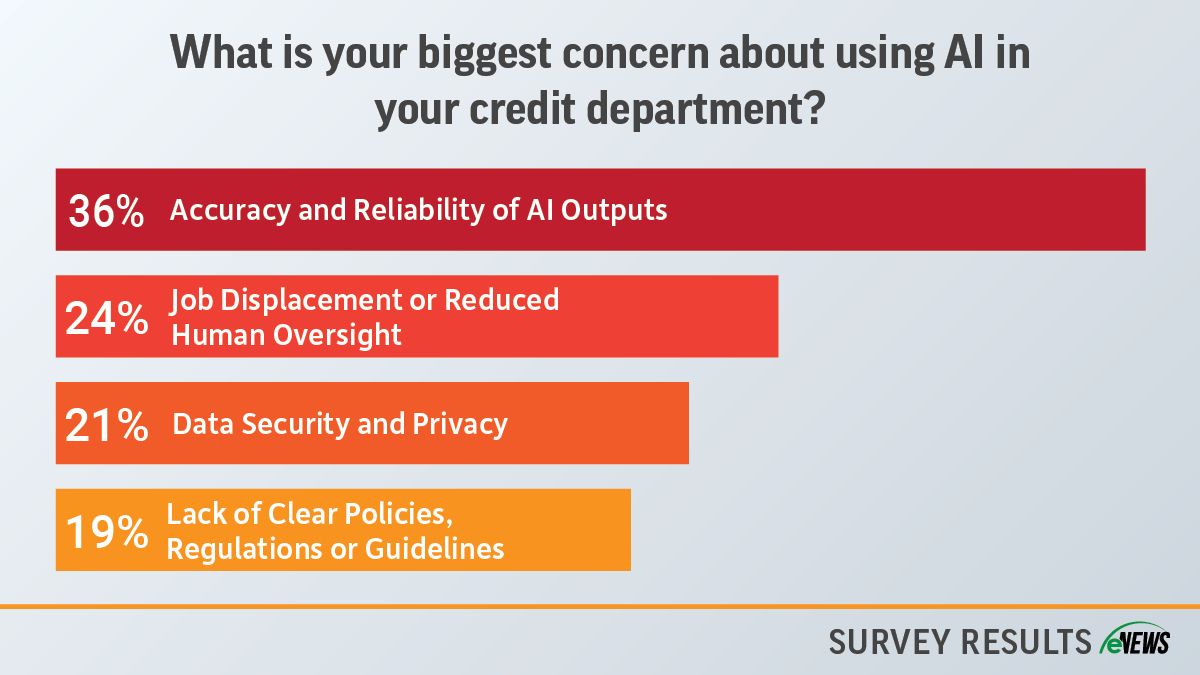eNews, Leadership
Tackle difficult conversations with confidence
Credit managers have difficult conversations every day—whether that’s collection calls with customers, disagreements with sales or reporting to senior management.
Why it matters: While most of us would prefer to sidestep conflict, for dynamic leaders in the workplace, this isn’t an option.

Credit managers have difficult conversations every day—whether that’s collection calls with customers, disagreements with sales or reporting to senior management.
Why it matters: While most of us would prefer to sidestep conflict, for dynamic leaders in the workplace, this isn’t an option.
- Credit managers must not avoid challenging conversations, but rather tackle them head-on with confidence.
At work, situations may arise between you and your supervisor, colleagues or customers that call for you to initiate a difficult conversation. The frequency of these discussions can depend on the industry, company, department or role.
The importance of relationship-building and networking in credit management requires professionals to handle difficult conversations tactfully, communicating effectively with customers, staff and management to reduce risk and increase revenue.
Here are some tips to manage difficult workplace discussions:
#1 Remain calm
Maintaining calmness during heated meetings, negotiations or tough conversations is challenging—whether that’s handling a collection call for a past-due account or confronting an employee on an ongoing issue. By staying calm despite the tension, credit professionals will not only find solutions faster, but they will build stronger relationships in the long run.
“I think it’s human nature to feel like somebody may be pushing you into a corner in a difficult conversation,” said Wendy Mode, CCE, CICP, corporate credit manager at Delta Steel, Inc. (Cedar Hill, TX). “I remind them that it’s nothing personal and it is strictly business. I try to defuse it by being more relatable and understanding of their situation.”
#2 Take a break
If a conversation becomes heated, it might be better to resume the discussion another day. “If I know that a conversation is not going well, I’ll get off the phone, maybe take a break and then follow up with an email,” Mode said. “You must be careful as emails can be misinterpreted. So, I take my time getting back to them and rescheduling another time to chat.”
Not only does walking away or distancing yourself help deescalate the conversation, but it also leaves room to find a better solution before the next discussion.
#3 Focus on the facts
Heightened emotions often dominate difficult conversations, overriding logic. Instead of focusing on the dispute itself, people may find themselves preoccupied with their own feelings stemming from the conflict. This means credit professionals must get to the root of the issue to find a solution.
Alisha Gray, purchasing manager at Orgill Inc. (Collierville, TN), says most difficult conversations stem from billing disputes due to incorrect pricing set by vendors. “It’s a matter of getting the information to our pricing team because customers don’t want to pay a bill until it’s right,” she said. “Sometimes the customers will get pricing from vendors, but we have the original, so customers can get the price they were quoted.”
Gray approaches difficult collection calls by being polite and courteous. She’s aware that no hostility is directed towards her but rather the situation for the customer not being able to make that payment. “Companies also need to be mindful to stay calm to diffuse that situation instead of making it worse.”
Planning can also keep you focused on the task at hand. Kelsie Olmsted, AR specialist at Outdoor Research (Seattle, WA), uses a neutral email to approach collections, gradually intensifying her language and consequences based on the age of the balance.
“If customers are being difficult when it comes to paying, we typically offer a small payment plan,” she said. “If there is further assistance required, we will offer an extended payment plan. We do place customers on a credit hold if their balance reaches over 30 days past due, so we try to use that as leverage to encourage payment before offering any payment plan.”
#4 Show empathy
Tough conversations at work demonstrate a leader’s respect for employees’ feelings and experiences. This open dialogue validates their feelings, fostering a supportive environment that values all perspectives. By showing empathy, employees feel motivated and committed, enhancing collaboration and job satisfaction.
Rita Milano, CBF, district credit manager at Hajoca Corporation (Baton Rouge, LA), takes an active listening approach for collection calls with difficult customers. “I think showing sincerity and that you’re genuinely here to partner together can help take these conversations to the next level while gaining trust from your customers,” she said.
But empathy doesn’t mean agreeing, being passive or tolerating mistreatment. Making space for emotion helps to release it. By letting the other person express themselves, you can uncover significant facts, assumptions and constraints, further developing your relationship.
Using a mix of empathy and strictness can help find a better and more adaptable solution. Olmsted’s first credit manager taught her to be firm and assertive to earn the respect of her clients. “But I’ve had to adjust my approach to collections since moving industries, as sometimes you catch more flies with honey than with vinegar,” she said. “I’m thankful for that experience though, as it prepared me well for hard conversations with smaller shops.”
#5 Ask for help
Workplace disputes often extend beyond two people and involve larger groups. Seeking assistance before, during or after difficult conversations can ease tension, find solutions and provide varied viewpoints, either from peers or management.
Perhaps you’re having an issue getting through to a customer. Ask yourself: Are there senior managers in your or other departments who align with your values that you feel comfortable seeking feedback from? Or maybe you’re dealing with a collection call where the customer refuses to pay. Ask a colleague or manager to give you advice or reach out to that customer.
Even setting up a meeting with just a few people to explain how you feel about the situation helps. “Think of yourself as an advocate for the cause, and pitch how taking certain steps would help the company, its leaders and its employees,” reads a Harvard Business Review article.
#6 Lighten the mood
Studies show that using humor can significantly reduce stress, an undeniable part of tough conversations. Todd Kashdan, author of The Art of Insubordination, said that a sense of humor can help tremendously in social advocacy. “Humor allows us to be human, disarm others and save face,” Kashdan told Harvard Business Review. “It calls people in and doesn’t assume negative intent.”
According to a McKinsey & Company report, leaders with a sense of humor are seen as 27% more motivating and admired, making their employees 15% more engaged. Their teams are more than twice as likely to solve a creativity challenge.
The bottom line: Being able to navigate challenging conversations with finesse is a crucial skill that can set credit professionals apart in their roles





